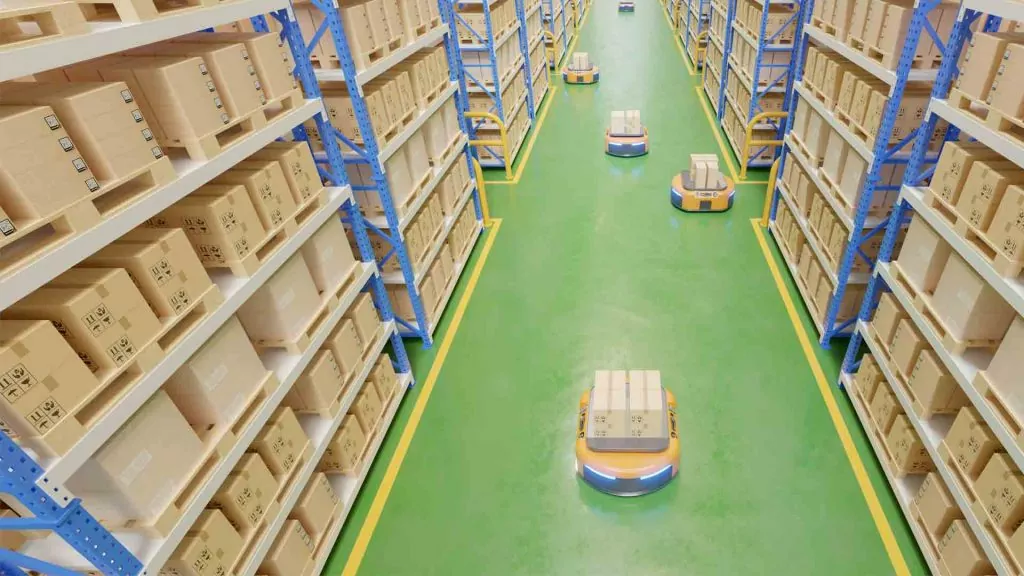Prices are on the rise in many countries around the world. Price increases are measured by a statistic called inflation, which expresses the percent prices have increased on average over some period of time. Canada saw its highest rate of inflation in over a decade in July when the annual pace of inflation hit 3.7%.
Compared to the U.S., though, Canada is in a relatively good spot. The Consumer Price Index (CPI), which measures inflation by comparing a fixed group of goods over time, rose to 5.4% for the month of July. This ties with June’s numbers for being the largest rate of price increase since 2008. An alternative measure of inflation, the Personal Consumption Expenditures Index, reached its highest rate in 30 years.
Economists have mixed feelings about how long inflation will last, but one thing is clear. Prices are on the rise, and you’ve likely noticed your money isn’t stretching as far as it used to. So why is this happening now? Well, Nobel-price-winning economist Milton Friedman famously commented, “inflation is always and everywhere a monetary phenomenon.” In other words, if you want to see why prices are rising, follow the money.
Money-printing mania
When a central bank prints more currency and puts it into circulation, those who get first access to the money are in for an unexpected payday. So, what will they do with this new money? Well, some of it will be saved, but some will be spent. Suddenly the newly printed money in your pocket might let you buy something you’ve had your eyes on for a while. The store then generates more revenue which can go to investors or paying new workers. So, spending increases, and this might not sound so bad so far. But this is when the problems began.
As that new money goes into the pockets of new workers or investors, they spend some of it too. But, as demand increases while this new money circulates, prices begin to rise. There are more dollars in the economy, but the same amount of stuff. So, the value of dollars decreases relative to the value of goods and services. Money loses some of its value, and prices rise to reflect the money’s lower value. When the central bank prints money, it creates this process whereby money loses its value.
This is exactly what’s happening around the world. In Canada, a common measure of the quantity of money in circulation shows an increase from $1.8 trillion at the beginning of 2020 to $2.2 trillion today. That’s approximately a 22% increase in the quantity of Canadian dollars in circulation in less than two years!
As you might expect from the higher rate of inflation, the increase in the supply of US dollars has been even more alarming. The supply of US dollars has increased by 32% in the same period. Nearly one-fourth of all U.S. dollars in circulation today were printed since January 2020.
This money printing, unprecedented in recent history, was in a large part to prop up economies being damaged by COVID-19 lockdowns. However, we’re beginning to feel the effects of this temporary solution, and Christians should recognize the consequences of money-printing.
Inflation hurts savers… especially among the poor
The problem isn’t simply that, after a period of having more money, consumers now have to face higher prices. Remember, the first person to receive new dollars is able to benefit from spending them. However, as the money circulates more, prices begin to rise. This means not everyone gets the benefit from this newly printed money. And this new money comes at a cost.
As prices rise, the money in people’s savings account loses value too. In this way, inflation acts as a tax on savings. By taking future purchasing power from the thrifty, government can print money and give it to private banks to lend to businesses today. Inflation hurts savers.
There are a few work-arounds to this problem. There are financial tools which help savers to shield the value of their money from the degradation to inflation, but, unfortunately, these tools and methods are costly to learn about and utilize. As such, we should expect inflation to be especially deleterious to poor and middle-class savers who don’t have time to focus on protecting their wealth since their weeks are consumed by making enough wealth to survive until the next paycheck.
The problems don’t end there. While some have the luxury of a job where pay can be re-negotiated easily, this is not true for everyone. Many jobs involve contracts wherein workers agree to a specified wage rate for a definite period. In this case, not only is the savings account of these workers losing value due to inflation, but the weekly paycheck they receive will also be hurt. If you receive the same paycheck every two weeks, but the paycheck can buy you fewer goods and services due to price increases, you’re worse off. Economists call this a decline in the real wage.
Why would the government inflate?
So what is the benefit to government lowering the purchasing power of citizens? Well, there are a couple of benefits to government.
First, a government can lower its debt burden. Governments often finance spending by selling government bonds. These bonds are promises to pay back the purchaser with interest. When inflation strikes, prices and nominal wages rise. As a result, the amount of tax revenue the government collects increases. This makes it easier to pay back debt which remains stagnant as prices and incomes rise.
Second, remember that the “new” money maintains high value before it circulates widely. As a result, government can appease special interest groups in the financial industry by putting the newly printed money into banks first. The new money in banks provides access for large corporations to take the high-powered money out as loans for new projects.
Be wary of the inflation tax
Christians should be especially wary of the tax imposed via inflation for two major reasons.
First, inflation disproportionately impacts the poor. When prices on everyday goods like groceries, energy, and transportation rise, this disproportionately hurts the poor. While 5% more expensive food is a relatively small increase for a millionaire, food can easily make up a huge percentage of monthly pay. Someone living paycheck-to-paycheck can’t afford a rise in prices. Further, the wealthy often receive income through financial assets like stocks. Stock prices also tend to increase during times of inflation, so the income of the rich stays relatively stable. The poor, often locked into prior wage agreements, don’t see their incomes rise immediately with inflation.
Second, inflationary policies encourage behavior the Bible explicitly calls foolish. Proverbs 21:20 (ESV) tells us, “precious treasure and oil are in a wise man’s dwelling, but a foolish man devours it.” This verse is descriptive. A fool consumes all of his wealth, whereas a wise man saves it in his dwelling. However, remember that inflation destroys the value of savings. If someone was keeping $1,000 in savings, and a grocery store trip costs $200 before inflation, and $250 after inflation, the saver goes from being able to afford five trips to being able to afford four. If instead, the consumer had used the $1,000 to buy a new flatscreen TV, inflation would not have had any effect. This example illustrates an important point. Because inflation taxes savers, it discourages frugality and encourages consumerism. Why save for tomorrow if money-printing is going to make savings worthless?
Unfortunately, monetary policy is hardly, if ever, discussed on political debate stages let alone Christian churches. However, if we believe our role as Christians in democracy involves looking out for the poor among us, we should watch out for policies which seem tailor-made to harm their interests.
Peter Jacobsen is an Assistant Professor of Economics at Ottawa University and the Gwartney Professor of Economic Education and Research at the Gwartney Institute. He has previously written for both the Foundation for Economic Education and the Institute for Faith, Works, and Economics.
References
https://fred.stlouisfed.org/series/M2SL
https://ycharts.com/indicators/canada_m2_money_supply












